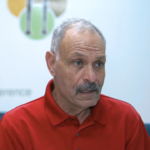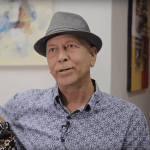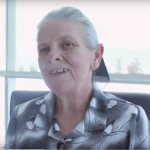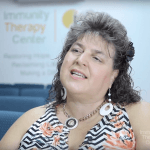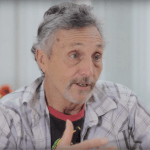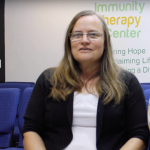Medically Reviewed by: pdm
Our Editorial Policy
Updated on: noviembre 21, 2019
Sobre el cáncer de páncreas
El cáncer de páncreas suele originarse en los tejidos del páncreas, un órgano en el abdomen situado detrás de la sección inferior del estómago. Cuando está sano, el páncreas:
- Libera hormonas que controlan los niveles de azúcar en la sangre
- Libera las enzimas destinadas a ayudar a la digestión
El cáncer de páncreas metastásico es cuando el cáncer se ha extendido a otras áreas del cuerpo. Antes de ser detectado, el cáncer de páncreas tiende a hacer metástasis en otros órganos locales, como el hígado, los pulmones o incluso los huesos. Aunque hay diferentes tipos de cáncer de páncreas, el más común es:
- Adenocarcinoma – Más del 90% de todos los casos son tumores exocrinos pancreáticos que se forman en las células que recubren el conducto pancreático.
Las formas más raras incluyen:
- Carcinoma de células acinares – Tumores pancreáticos que causan que el páncreas produzca lipasa en exceso, que la enzima de digestión de las grasas.
- Neoplasia papilar-mucinosa intraductal (NMPI): tumores pancreáticos que se desarrollan en el conducto pancreático principal o en una rama lateral.
- Neoplasia quística mucinosa – Un quiste lleno de líquido que típicamente se puede encontrar en la cola del páncreas y afecta principalmente a las mujeres.
Según Cancer.net, en el 2019:
- Aproximadamente 6.770 adultos (29.940 hombres y 26.830 mujeres) en los Estados Unidos recibirán un diagnóstico de cáncer de páncreas.
- Ocurrirán aproximadamente 45.750 muertes (23.800 hombres y 21.950 mujeres) a causa de la enfermedad. Así que, aunque es menos común que muchas otras formas de cáncer, es más mortal.
- El paciente más probable de ser diagnosticado con cáncer de páncreas sería un hombre de 60 años o menos.
Causas y factores de riesgo del cáncer de páncreas
Como muchos otros cánceres, las razones exactas por las que se produce el cáncer de páncreas siguen siendo en gran parte desconocidas. A pesar de ello, hay factores de riesgo que pueden alterar las posibilidades de que alguien lo desarrolle. Los factores de riesgo son:
- Fumar – Uno de los contribuyentes más críticos al cáncer de páncreas. El riesgo de la enfermedad es casi dos veces más alto para los fumadores de cigarrillos en comparación con los no fumadores.
- Pancreatitis crónica – La inflamación a largo plazo del páncreas está relacionada con mayores riesgos.
- Diabetes – Aunque se han encontrado asociaciones, las razones exactas siguen siendo inciertas.
- Historial familiar de síndromes o mutaciones genéticas – Las mutaciones o síndromes genéticos heredados pueden contribuir a formas más raras de cáncer de páncreas.
- Historial familiar de cáncer de páncreas – Si usted tiene varios miembros de la familia con cáncer de páncreas, sus probabilidades de desarrollarlo también se incrementan dramáticamente.
- Obesidad – El Fondo Mundial para la Investigación del Cáncer estima que 1 de cada 5 cánceres están relacionados con la grasa corporal.
- Edad avanzada – La mayoría de las personas son diagnosticadas después de los 65 años.
- Raza – las personas de raza negra son 25% más propensas a desarrollarlo que otras razas.
Detección temprana, diagnóstico y estadificación
Los signos y síntomas raramente se manifiestan antes de que la enfermedad haya progresado o haya hecho metástasis en otro lugar. Los síntomas comunes son:
- Coágulos de sangre
- Depresión
- Fatiga
- Ictericia
- Pérdida de apetito
- Diabetes de reciente aparición
- Dolor en la parte superior del abdomen que se extiende a la espalda
- Pérdida de peso involuntaria
Las pruebas de detección se hacen típicamente de una de cuatro maneras:
- Pruebas de imagen: resonancias magnéticas y tomografías por emisión de positrones.
- Ultrasonidos endoscópicos: el dispositivo se pasa a través del esófago hasta el estómago.
- Biopsia: se extrae una muestra de tejido para su análisis.
- Análisis de sangre: prueba para detectar proteínas específicas o marcadores de tumores que suelen desprenderse de las células cancerosas del páncreas.
Etapas del cáncer de páncreas
Hay diferentes etapas de cáncer, pero en cualquier etapa debe buscar alguna forma de terapia, tratamiento, cirugía, o incluso ensayos clínicos disponibles. La estadificación depende de los detalles relacionados con cada caso individual de las personas con cáncer de páncreas, pero se puede discutir en general:
- Etapa I – Las células cancerosas o el tumor están solamente en el páncreas y típicamente pueden ser removidas por medio de cirugía.
- Etapa II – El cáncer se ha propagado a los vasos sanguíneos cercanos y/o a los ganglios linfáticos, pero aún no se ha extendido a otro órgano.
- Etapa III – El tumor se ha propagado a las principales arterias y/o nódulos linfáticos cercanos, pero no se ha propagado a otro órgano. En esta etapa, los tumores pancreáticos son inoperables, lo que significa que no pueden ser extirpados mediante cirugía.
- Etapa IV – El cáncer ha hecho metástasis y se ha extendido tanto a órganos locales como distantes. Típicamente, alcanzará alguna combinación de los ganglios linfáticos, los pulmones, el hígado y las paredes abdominales, lo que hace difícil encontrar un buen plan de tratamiento.
Las tasas de supervivencia, las opciones de terapia y otros ensayos clínicos varían entre las personas con cáncer de páncreas y sus casos personales. Visite nuestro sitio web o llámenos para averiguar qué tratamiento alternativo para el cáncer de páncreas es adecuado para usted o para su ser querido.
Próximos pasos:
El Immunity Therapy Center utiliza una variedad de tratamientos alternativos para el cáncer para fortalecer su sistema inmunológico mientras que se enfoca directamente en las células cancerosas. El tipo y la combinación de terapias que utilizamos varían dependiendo del tipo y la ubicación del cáncer, el estadio del cáncer y la salud general del individuo. Si usted está interesado en un plan de tratamiento de terapia alternativa personalizada o aprender más acerca de la terapia alternativa para el tratamiento del cáncer, ¡comuníquese con el Immunity Therapy Center hoy!
Fuentes
Cancer.net. Pancreatic Cancer: Statistics. https://www.cancer.net/cancer-types/pancreatic-cancer/statistics
Pandol, S. NCBI. The Burning Question: Why is Smoking a Risk Factor for Pancreatic Cancer? 2012. https://www.ncbi.nlm.nih.gov/pmc/articles/PMC3956306/
World Cancer Research Fund. Cancer Prevention Recommendations. https://www.wcrf.org/dietandcancer/recommendations-about
John Hopkins Medicine. Pancreatic Cancer and African Americans. https://pathology.jhu.edu/pc/NFPTR/AA.php
Pancreatic Cancer Action Network. Staging. https://www.pancan.org/facing-pancreatic-cancer/diagnosis/staging/
Terapias que usamosAt Immunity Therapy Center, our goal is to provide objective, updated, and research-based information on all health-related topics. This article is based on scientific research and/or other scientific articles. All information has been fact-checked and reviewed by Dr. Carlos Bautista, a Board Certified Medical Doctor at Immunity Therapy Center. All information published on the site must undergo an extensive review process to ensure accuracy. This article contains trusted sources with all references hyperlinked for the reader's visibility.
Cuidado personalizado para el cuerpo y la mente
Discuta su plan de tratamiento alternativo personalizado con nuestro equipo hoy mismo.
Escuche a nuestros pacientes
Descubra por qué Immunity Therapy Center es un nombre de confianza en el turismo médico y los centros de tratamiento del cáncer en México.
FAQ's
Select Topic:- Diseases and Treatments
- Our Mexico-based Center and Team
- Patient Expectations and Experiences
- Costs and Travel Arrangements
Diseases and Treatments
Many patients come to us after going through several rounds of chemotherapy, radiation, surgery, and other conventional cancer treatments. Our alternative cancer therapy programs are often more effective and have fewer side effects for our patients than those treatments.
Many of our alternative therapies are designed to boost your immune system so it is better able to recognize, fight, and kill cancer cells without the need of chemotherapy and radiation.
Learn more about our alternative cancer therapies.
We offer the following alternative therapies for naturally treating cancer and other diseases:
- Whole Body Hyperthermia
- Localized Hyperthermia
- Sonodynamic Therapy
- Laser Cancer Therapy
- Insulin Potentiation Therapy (IPT)
- Rife Therapy
- Intravenous Solutions (IV Cancer Therapy)
- Enzymatic Cancer Therapy
- Oxygen Cancer Therapy
- Vitamin and Mineral Supplements
- Laetrile Therapy (Vitamin B17)
- Specific Transfer Factor Vaccine Against Cancer
- Regenerative Cell Cancer Therapy (Peptide Treatment)
- Intraperitoneal Perfusion Hyperthermia
- Viral Anticancer Vaccine
We emphasize immunotherapy cancer therapy, which includes different therapies designed to boost and strengthen your immune system so it can recognize, fight, and kill cancer cells on its own. Immunity Therapy Center is unique because we are able to offer both alternative and conventional treatments in customized, individualized programs.
Learn more about our alternative cancer therapies.
Most treatment programs are completed in three weeks. Depending on the stage and condition of your disease, you may require a treatment program of six weeks or more.
Learn more about our treatment process.
Dr. Bautista will evaluate you once your program is complete and recommend follow-up care. Depending on your situation, this may include alternative therapies, medications, and natural supplements you can take at home, or returning to our center in three to six months for further treatment.
Learn more about our alternative cancer treatment process.
Our Mexico-based Center and Team
We are in Tijuana, a major metropolitan city in Baja California, Mexico, right across the border from San Diego, California. Learn more about our location and our facility.
Dr. Bautista received formal medical training from Baja California State University in Mexico. He also holds a Masters in Nutrition from the same university. He has worked as a Director for alternative medicine hospitals. Early in his career, Dr. Bautista became interested in alternative cancer therapy and treatments and has studied alternative treatments extensively around the world.
Learn more about Dr. Bautista.
Patient Expectations and Experiences
Our alternative, natural treatment programs are completely customized and different for each person. Dr. Bautista personally evaluates each patient to design a holistic, alternative therapy program based on specific needs. He meets with every patient, every day, to monitor and evaluate his or her treatment and progress. This allows him to make immediate adjustments to treatments as needed.
Our entire team strives to make your treatment program a positive experience.
Learn more about our treatment process and listen to some of our patients’ experiences at Immunity Therapy Center.
We treat a wide range of patients with a variety of cancer types from stage 1 to stage 4, as well as patients with different autoimmune diseases, chronic degenerative diseases, and infectious diseases. All these factors, as well as previous treatments and medical history, impact individual success and survival rates.
Dr. Bautista will discuss your condition and chance of success during your initial consultation. Many of our patients do go into remission and see enhanced quality of life following treatment.
Learn more about survival and success rates.
We highly encourage bringing a friend or family member. Having strong support is an important factor in your treatment success.
Dr. Bautista and our nutritionist will discuss your diet with you during your cancer treatment. Your specific dietary needs may vary, but we encourage you to eat a balanced, organic diet as much as possible.
We have an onsite chef that prepares organic, healthy meals at our center.
Costs and Travel Arrangements
A typical three-week treatment program costs $18,995USD, and includes all therapies, diagnostics, and a healthy, organic, breakfast and lunch (+2 juices/smoothies) Monday – Saturday. Room and other board, travel costs, surgeries, and blood transfusions are not included. Some very specific therapies may not be included. Depending on your stage and condition, you may need six weeks of treatment or more.
There are options to help you cover the cost of your alternative cancer treatment at Immunity Therapy Center. Visit our Payment & Financing page to learn more.
Unfortunately, most major health insurance providers do not cover alternative treatments, but there are other options to help you cover the cost of your treatment. Visit our Payment & Financing page to learn more.
We accept major credit cards (some fees may apply), personal and cashier’s checks, wire transfers, and cash. You can also easily PAY ONLINE.
Airfare is not included in the program cost; however, transfers to and from the airport (Tijuana or San Diego) and transportation between our center and your hotel are included.
You may fly into Tijuana, Mexico or San Diego, California. Wewill make arrangements to meet and pick you up at either airport. We are only 25 minutes from the San Diego International Airport. You may also drive to the center. When you schedule your treatment, we will provide detailed driving directions.
Learn more about making travel arrangements to our facility in Tijuana, Mexico.
If you are undergoing outpatient treatment, you will need to stay in a local hotel or other lodging option during your treatment. We are located near several quality hotels in Tijuana, and have arranged special rates for our patients.
Learn more about recommended hotels and accommodations on our Travel Information page.
FAQ's
Select Topic:- Diseases and Treatments
- Our Mexico-based Center and Team
- Patient Expectations and Experiences
- Costs and Travel Arrangements
Diseases and Treatments
Many patients come to us after going through several rounds of chemotherapy, radiation, surgery, and other conventional cancer treatments. Our alternative cancer therapy programs are often more effective and have fewer side effects for our patients than those treatments.
Many of our alternative therapies are designed to boost your immune system so it is better able to recognize, fight, and kill cancer cells without the need of chemotherapy and radiation.
Learn more about our alternative cancer therapies.
We offer the following alternative therapies for naturally treating cancer and other diseases:
- Whole Body Hyperthermia
- Localized Hyperthermia
- Sonodynamic Therapy
- Laser Cancer Therapy
- Insulin Potentiation Therapy (IPT)
- Rife Therapy
- Intravenous Solutions (IV Cancer Therapy)
- Enzymatic Cancer Therapy
- Oxygen Cancer Therapy
- Vitamin and Mineral Supplements
- Laetrile Therapy (Vitamin B17)
- Specific Transfer Factor Vaccine Against Cancer
- Regenerative Cell Cancer Therapy (Peptide Treatment)
- Intraperitoneal Perfusion Hyperthermia
- Viral Anticancer Vaccine
We emphasize immunotherapy cancer therapy, which includes different therapies designed to boost and strengthen your immune system so it can recognize, fight, and kill cancer cells on its own. Immunity Therapy Center is unique because we are able to offer both alternative and conventional treatments in customized, individualized programs.
Learn more about our alternative cancer therapies.
Most treatment programs are completed in three weeks. Depending on the stage and condition of your disease, you may require a treatment program of six weeks or more.
Learn more about our treatment process.
Dr. Bautista will evaluate you once your program is complete and recommend follow-up care. Depending on your situation, this may include alternative therapies, medications, and natural supplements you can take at home, or returning to our center in three to six months for further treatment.
Learn more about our alternative cancer treatment process.
Our Mexico-based Center and Team
We are in Tijuana, a major metropolitan city in Baja California, Mexico, right across the border from San Diego, California. Learn more about our location and our facility.
Dr. Bautista received formal medical training from Baja California State University in Mexico. He also holds a Masters in Nutrition from the same university. He has worked as a Director for alternative medicine hospitals. Early in his career, Dr. Bautista became interested in alternative cancer therapy and treatments and has studied alternative treatments extensively around the world.
Learn more about Dr. Bautista.
Patient Expectations and Experiences
Our alternative, natural treatment programs are completely customized and different for each person. Dr. Bautista personally evaluates each patient to design a holistic, alternative therapy program based on specific needs. He meets with every patient, every day, to monitor and evaluate his or her treatment and progress. This allows him to make immediate adjustments to treatments as needed.
Our entire team strives to make your treatment program a positive experience.
Learn more about our treatment process and listen to some of our patients’ experiences at Immunity Therapy Center.
We treat a wide range of patients with a variety of cancer types from stage 1 to stage 4, as well as patients with different autoimmune diseases, chronic degenerative diseases, and infectious diseases. All these factors, as well as previous treatments and medical history, impact individual success and survival rates.
Dr. Bautista will discuss your condition and chance of success during your initial consultation. Many of our patients do go into remission and see enhanced quality of life following treatment.
Learn more about survival and success rates.
We highly encourage bringing a friend or family member. Having strong support is an important factor in your treatment success.
Dr. Bautista and our nutritionist will discuss your diet with you during your cancer treatment. Your specific dietary needs may vary, but we encourage you to eat a balanced, organic diet as much as possible.
We have an onsite chef that prepares organic, healthy meals at our center.
Costs and Travel Arrangements
A typical three-week treatment program costs $18,995USD, and includes all therapies, diagnostics, and a healthy, organic, breakfast and lunch (+2 juices/smoothies) Monday – Saturday. Room and other board, travel costs, surgeries, and blood transfusions are not included. Some very specific therapies may not be included. Depending on your stage and condition, you may need six weeks of treatment or more.
There are options to help you cover the cost of your alternative cancer treatment at Immunity Therapy Center. Visit our Payment & Financing page to learn more.
Unfortunately, most major health insurance providers do not cover alternative treatments, but there are other options to help you cover the cost of your treatment. Visit our Payment & Financing page to learn more.
We accept major credit cards (some fees may apply), personal and cashier’s checks, wire transfers, and cash. You can also easily PAY ONLINE.
Airfare is not included in the program cost; however, transfers to and from the airport (Tijuana or San Diego) and transportation between our center and your hotel are included.
You may fly into Tijuana, Mexico or San Diego, California. Wewill make arrangements to meet and pick you up at either airport. We are only 25 minutes from the San Diego International Airport. You may also drive to the center. When you schedule your treatment, we will provide detailed driving directions.
Learn more about making travel arrangements to our facility in Tijuana, Mexico.
If you are undergoing outpatient treatment, you will need to stay in a local hotel or other lodging option during your treatment. We are located near several quality hotels in Tijuana, and have arranged special rates for our patients.
Learn more about recommended hotels and accommodations on our Travel Information page.
Start Your Healing Journey with a FREE Consultation
At ITC, we understand the importance of feeling heard and supported. Fill out our form, to speak with one of our experts in the next 24 hours to have a free consultation and guidance, creating a personalized treatment plan just for you. You’re not alone on your path to healing. We’re here to support you through every step!

